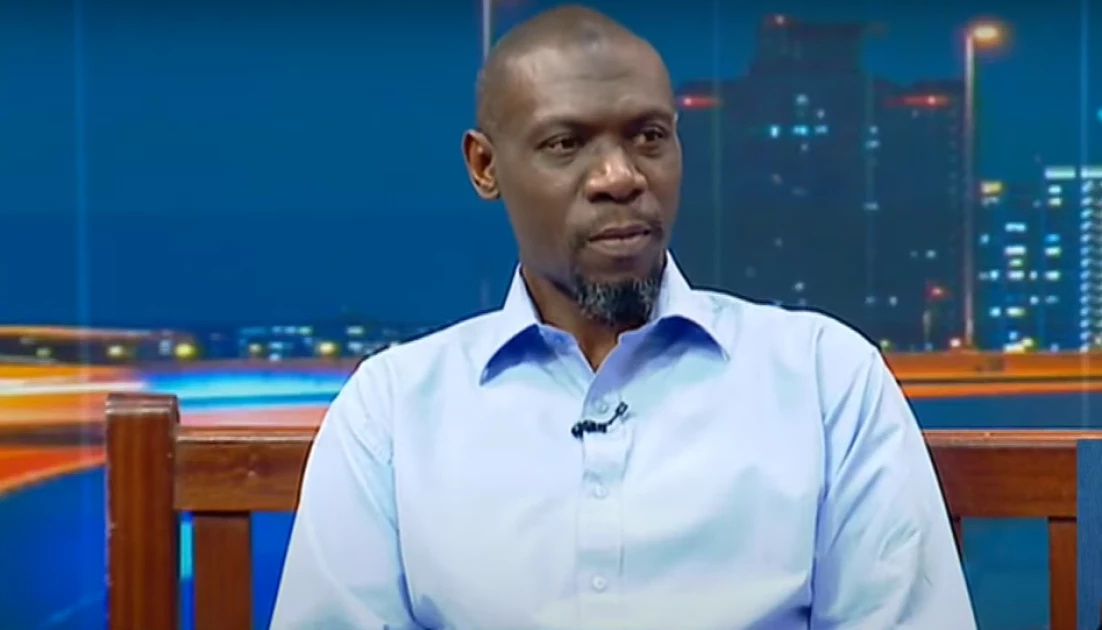'It was just a mistake': Stephen Munyakho recounts fight that led to death sentence in Saudi

Stephen Munyakho speaks during an interview on Citizen TV’s JKLive show on July 30, 2025.

Audio By Carbonatix
Stephen Munyakho, the Kenyan man who spent 14 years on death
row in Saudi Arabia, has spoken publicly for the first time about the events
that led to his incarceration, describing the 2011 incident as a salary-related
fight that tragically spiraled out of control.
Speaking during an interview on Citizen TV’s JKLive show on
Wednesday night, Munyakho — now also known by his Muslim name Abdulkareem —
recounted the altercation with his Yemeni colleague, Abdi Halim, which
ultimately resulted in Halim’s death and a murder conviction that saw him
sentenced to death by beheading.
“This tragedy that happened was something that I cannot even
tell how it happened because this Abdi Halim was a very good friend of mine. We
used to work together,” Munyakho narrated.
He said the two were both working under the accounts
department at a restaurant in Saudi Arabia at the time.
“We were very good colleagues and even at one time we had
another project — the amusement park. He had two wives; the first a Thailand
national; she had a daughter and I can remember Susan, I used to hold her in my
hands,” he recalled.
Describing the fatal night, Munyakho said the altercation was
sparked by a disagreement over his salary.
“It was a salary-related fight. I was supposed to go and
collect my salary, but he was not willing to let me go. I ended up getting
angry. He used words that were not very good and I could not take them. He is
the one who started the fight,” he said.
Munyakho revealed that he had stab wounds on his hand and
thigh from the fight, adding that the knife involved belonged to the deceased.
“The knife was his. After he used it on me, I used it on
him," noted Munyakho.
He emphasized that the fight — which he described as the first
physical confrontation of his life — was never meant to end in death.
Munyakho said Halim's death was caused not directly by the
stab wounds but by delayed medical attention.
“I never ever thought someone could die in my hands. We
happened to have a misunderstanding and it was my first fight in my life… I was
known to be a peacemaker and my mother can testify," he explained.
“There was some stabbing which was not intentional. The main
cause of his death was not stabbing but that he delayed going to hospital and
so he lost a lot of blood. It was just a mistake.”
The incident occurred on the night of April 9, 2011 — exactly
16 years after Munyakho had first travelled to Saudi Arabia.
“When I was told he had passed on, I could not believe it,” he
said.
Munyakho returned home to Kenya early Tuesday morning after a
protracted legal battle in Saudi Arabia, where his initial manslaughter
conviction was later upgraded to murder, resulting in a death sentence.
His execution was stayed after the victim’s family agreed to
accept diyya (blood money) — a financial compensation allowed under Islamic
law.
With support from the Kenyan government and the Muslim World
League, Ksh.129 million was raised to secure his release. He was freed on July
22, 2025, after completing all judicial processes and performing Umrah, before
being deported to Kenya.


Leave a Comment